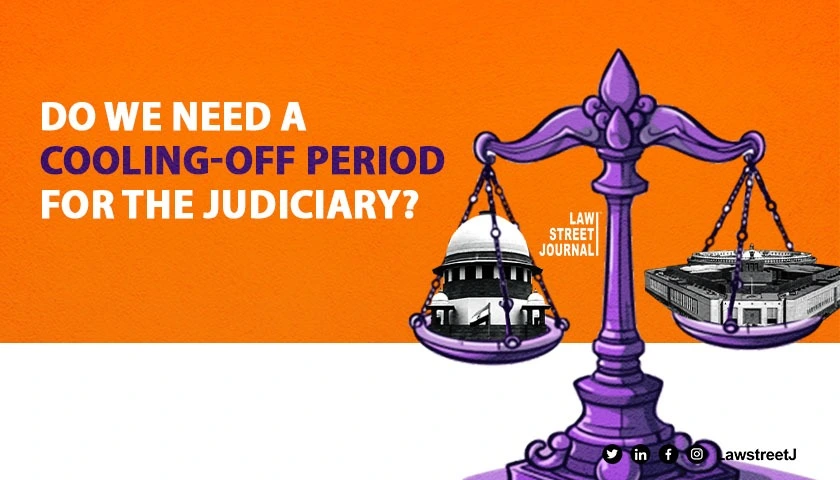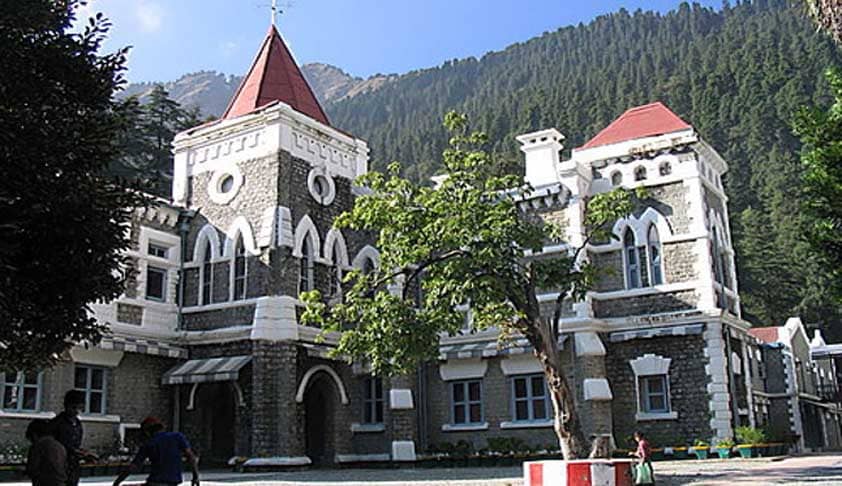New Delhi: The recent entry of Abhijit Gangopadhyay into politics, hours after resigning as a Judge of Calcutta High Court has triggered a debate over the cooling-off period for the judiciary.
Abhijit Gangopadhyay drew the attention of the entire legal fraternity as he announced his intent to resign from his position as a judge.
The dramatic revelation wasn't due to any sense of dissatisfaction with the judicial system or the pressures of the position. Rather, the judge cited his eagerness to engage in politics as the driving force behind his resignation.
Notably, Gangopadhyay had presided over key judgments that criticised the Trinamool Congress (TMC) government in the state. He delivered crucial verdicts that have helped uncover scams like the Bengal school recruitment scam.
While talking to the media, the former judge said, I have been forced to take this step (to join politics) due to taunts and statements by the ruling party. A judge cannot be personally attacked. That is exactly what they had been doing. The ruling party insulted me many times. They had been constantly abusing me since many of their corrupt activities were getting revealed every day. Their taunts and statements inspired me to take this step.
No constitutional bar on judges joining politics
Do we have a constitutionally mandated cooling-off period for judges who quit? At least not yet. Once known as the peoples judge, Gangopadhyay is not the first judge to join politics.
For example, Justice V.R. Krishna Iyer, who had been MLA in both Madras and Kerala was appointed to the Kerala High Court in 1968 and later became a Supreme Court judge in 1973.
Former Supreme Court Justice Baharul Islam also resigned before his retirement to contest the Lok Sabha elections from Barapeta, Assam, in 1983, and was subsequently sent to the Rajya Sabha. He had earlier also been a Rajya Sabha MP before being appointed as a judge in the Guwahati High Court.
Justice Koka Subba Rao resigned as the Chief Justice of India in 1967 after accepting the oppositions invitation to contest the presidential elections.
Justice Guman Mal Lodha had been the president of the Rajasthan unit of the Jana Sangh before being appointed as judge to the Rajasthan high court and later even contested the Lok Sabha elections.
Justice K.S. Hegde, who had been a Rajya Sabha MP on a Congress ticket, and later resigned from the post to become a judge in the Mysore high court, and subsequently of the Supreme Court, after which he again contested elections and even became the Lok Sabha speaker in 1977.
Justices AM Thipsay, Vijay Bhauguna, M Rama Jois, Rajinder Sachar all had taken plunge into active politics after retiring as HC judges. Rajya Sabha seats have been taken by retired CJIs Ranganath Misra and Ranjan Gogoi, while gubernatorial assignments were accepted by former SC judge Fathima Beevi and ex-CJI P Sathasivam.
Supreme Court on "cooling-off period"
In 2023, the Supreme Court dismissed a plea seeking a "cooling-off period" of two years for retired judges of the top court and high courts before they can accept political appointments.
A bench of Justices Sanjay Kishan Kaul and Sudhanshu Dhulia said the issue whether a retired judge should accept any office or not has to be left to the "better sense" of the judge concerned. The bench said it cannot go into the issue of whether an ex-judge can get elected to the Lok Sabha or nominated to the Rajya Sabha.







.jpeg)
.jpeg)
!['Unprecedented,' 52,191 cases disposed of by Supreme Court in 2023 [Read Records]](/secure/uploads/2023/12/lj_4127_SC_disposes_of_cases.jpg)







